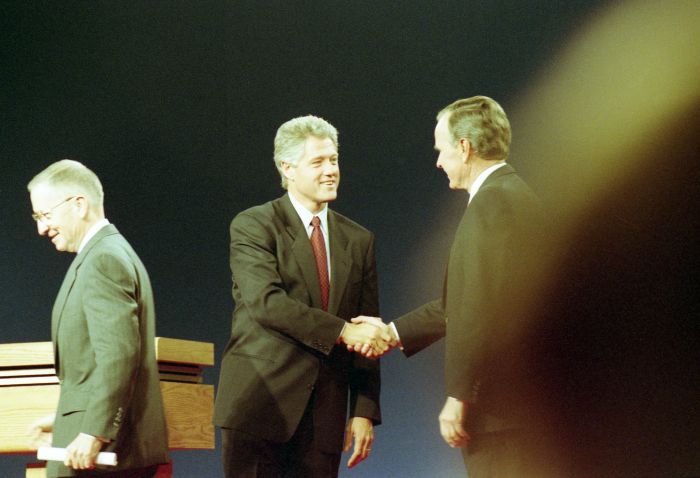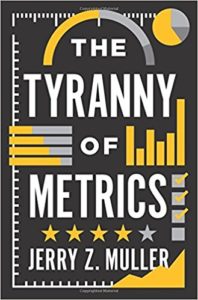Nielsen estimates that 84 million people watched the first presidential debate of the 2016 election. That was 36.4% of eligible voters and 60.5% of actual voters. Given how many US voters watch the presidential debates, participating in the televised debates is considered a table stake for having a shot at being elected president.
The official sounding ”Commission on Presidential Debates” decides who gets to be on the debate stage. It’s formation and stated purpose is interesting:
After studying the election process in 1985, the bipartisan National Commission on Elections recommended “turning over the sponsorship of Presidential debates to the two major parties”. The CPD was established in 1987 by the chairmen of the Democratic and Republican Parties to “take control of the Presidential debates”. The commission was staffed by members from the two parties and chaired by the heads of the Democratic and Republican parties… (wikipedia)
The League of Women Voters had been the previous host of the debates.
In 1988, the League of Women Voters withdrew its sponsorship of the presidential debates after the George H. W. Bush and Michael Dukakis campaigns secretly agreed to a “memorandum of understanding” that would decide which candidates could participate in the debates, which individuals would be panelists (and therefore able to ask questions), and the height of the lecterns. The League… released a statement saying that it was withdrawing support for the debates because “the demands of the two campaign organizations would perpetrate a fraud on the American voter.” (wikipedia)
Ross Perot’s 1992 bid for president as an independent was disruptive. Perot took 19% of the vote and many believe that had he not run, Republican incumbent George H. W. Bush would have been re-elected instead of Democrat candidate Bill Clinton.
The CPD excluded Perot from the televised debates in 1996.
Changing the Table Stakes
Four years later, the commission changed the rules of the game entirely, requiring that candidates have at least 15% in 5 national polls in order to get on the debate stage. Which polls count are consider to be “national polls”? The CPD decides.
The creation of the Commission on Presidential Debates (a cartel) and the 15% rule clearly benefit the candidates of the two major parties in the United States at the expense of all third-party (or independent) candidates and the voting populace. This legal collusion has been extremely effective at controlling who has a serious shot at running for president and who ultimately becomes president.
So not only is being on the debate stage a table stake, but having 15% in “5 national polls” approved by the CPD is considered a table stake as well.
When structured in this way, table stakes can be a form of moat or barrier to entry. So whoever controls the table stakes can have tremendous control over the outcome. Check out Jeffrey Pfeffer’s Power: Why Some People Have It and Others Don’t for a few great examples of establishing and controlling tables stakes in corporate environments – even if you’re at the bottom of the power hierarchy.



